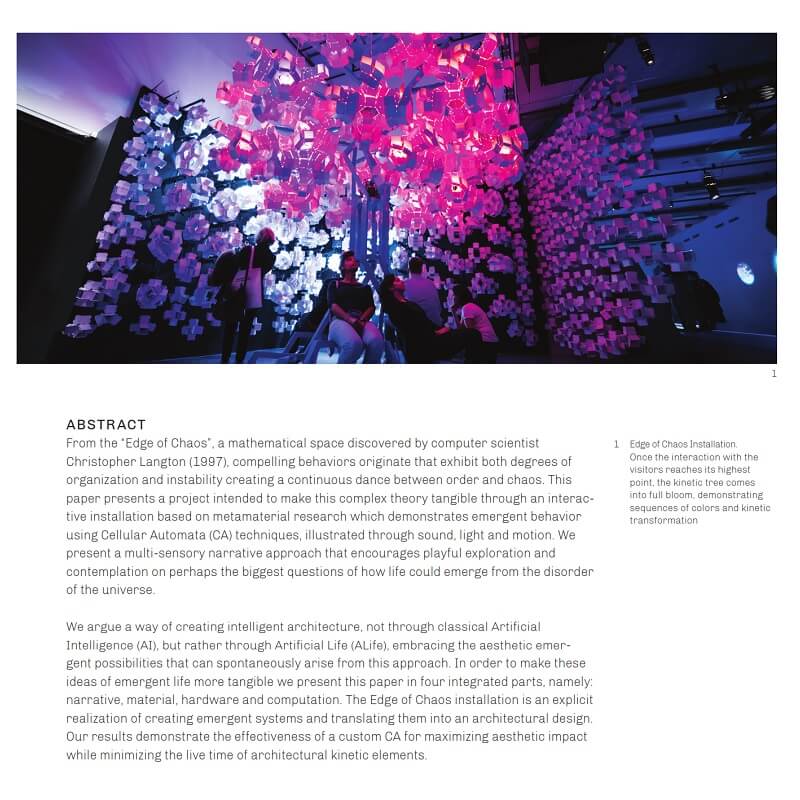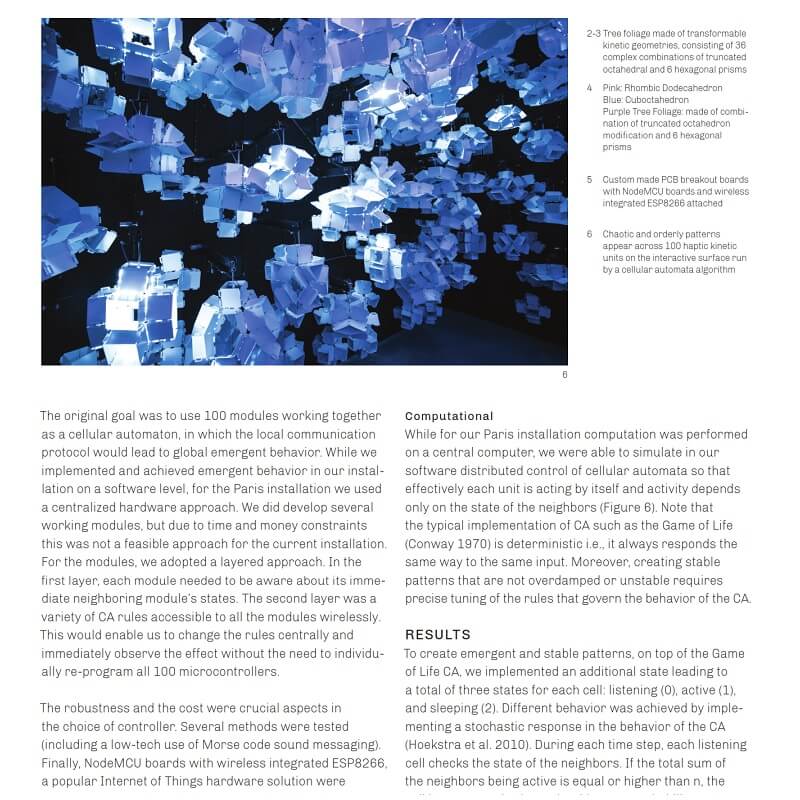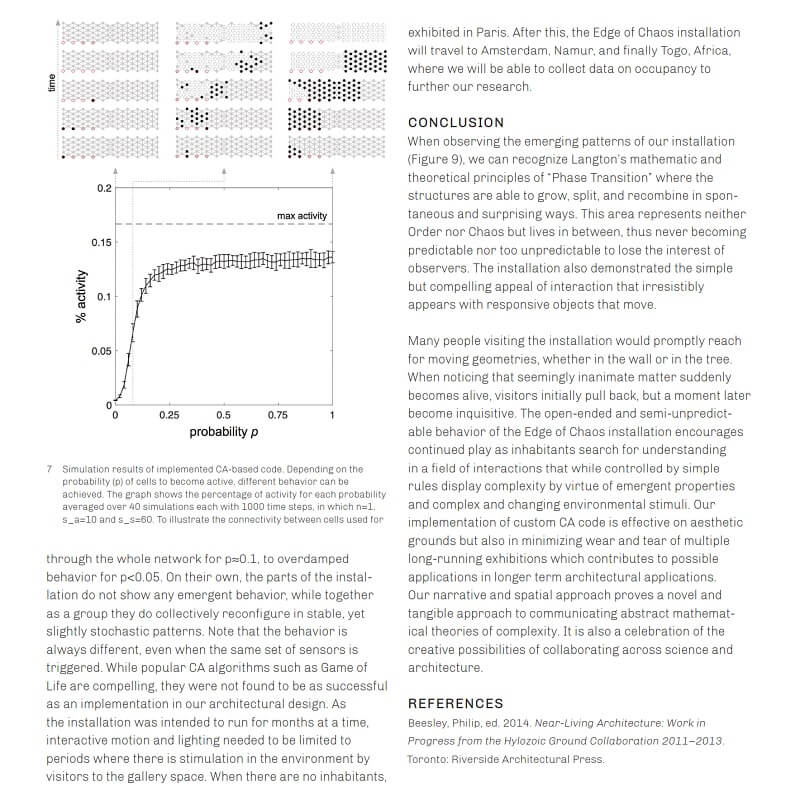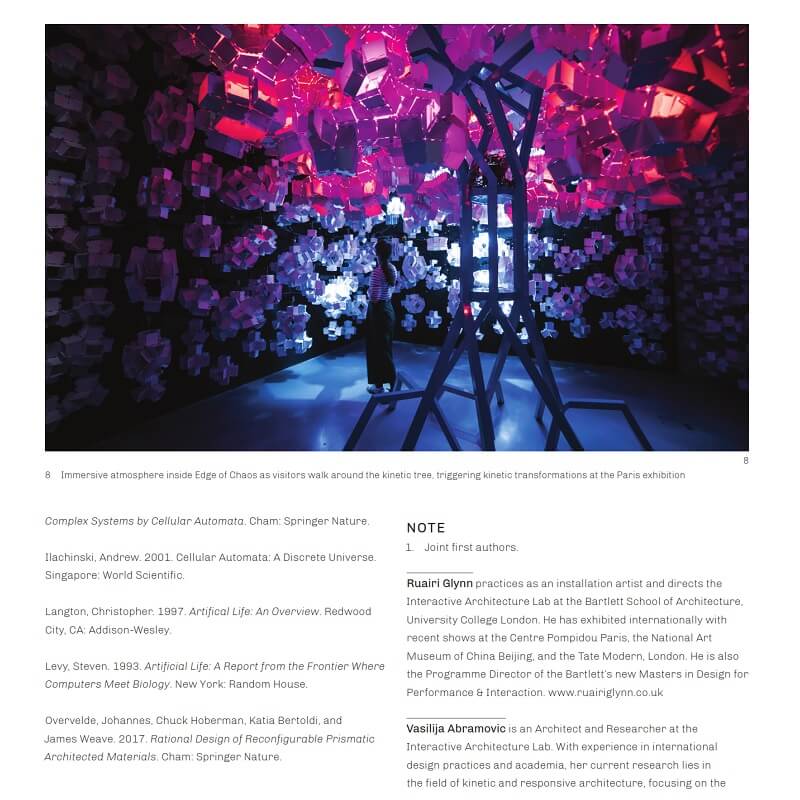
String Art Generator
String Art Generator by Yiran is a grasshopper plugin which generates a string art sequence based on an input image. You can


From the “Edge of Chaos”, a mathematical space discovered by computer scientist Christopher Langton (1997), compelling behaviors originate that exhibit both degrees of organization and instability creating a continuous dance between order and chaos.
 This paper by Ruairi Glynn, Vasilija Abramovic and Johannes T. B. Overvelde, presents a project intended to make this complex theory tangible through an interactive installation based on metamaterial research which demonstrates emergent behavior using Cellular Automata (CA) techniques, illustrated through sound, light and motion.
This paper by Ruairi Glynn, Vasilija Abramovic and Johannes T. B. Overvelde, presents a project intended to make this complex theory tangible through an interactive installation based on metamaterial research which demonstrates emergent behavior using Cellular Automata (CA) techniques, illustrated through sound, light and motion.
 Authors present a multi-sensory narrative approach that encourages playful exploration and contemplation on perhaps the biggest questions of how life could emerge from the disorder of the universe. They argue a way of creating intelligent architecture, not through classical Artificial Intelligence (AI), but rather through Artificial Life (ALife), embracing the aesthetic emergent possibilities that can spontaneously arise from this approach.
Authors present a multi-sensory narrative approach that encourages playful exploration and contemplation on perhaps the biggest questions of how life could emerge from the disorder of the universe. They argue a way of creating intelligent architecture, not through classical Artificial Intelligence (AI), but rather through Artificial Life (ALife), embracing the aesthetic emergent possibilities that can spontaneously arise from this approach.
 In order to make these ideas of emergent life more tangible we present this paper in four integrated parts, namely: narrative, material, hardware and computation. The Edge of Chaos installation is an explicit realization of creating emergent systems and translating them into an architectural design. The results demonstrate the effectiveness of a custom CA for maximizing aesthetic impact while minimizing the live time of architectural kinetic elements.
In order to make these ideas of emergent life more tangible we present this paper in four integrated parts, namely: narrative, material, hardware and computation. The Edge of Chaos installation is an explicit realization of creating emergent systems and translating them into an architectural design. The results demonstrate the effectiveness of a custom CA for maximizing aesthetic impact while minimizing the live time of architectural kinetic elements.


String Art Generator by Yiran is a grasshopper plugin which generates a string art sequence based on an input image. You can

This paper by Alessandro Liuti, Sofia Colabella, and Alberto Pugnale, presents the construction of Airshell, a small timber gridshell prototype erected by employing a pneumatic formwork.

In this paper by Gregory Charles Quinn, Chris J K Williams, and Christoph Gengnagel, a detailed comparison is carried out between established as well as novel erection methods for strained grid shells by means of FE simulations and a 3D-scanned scaled physical model in order to evaluate key performance criteria such as bending stresses during erection and the distance between shell nodes and their spatial target geometry.

In this paper by Frederic Tayeb, Olivier Baverel, Jean-François Caron, Lionel du Peloux, ductility aspects of a light-weight composite gridshell are developed.
Parametric Ideas for Architects @2025